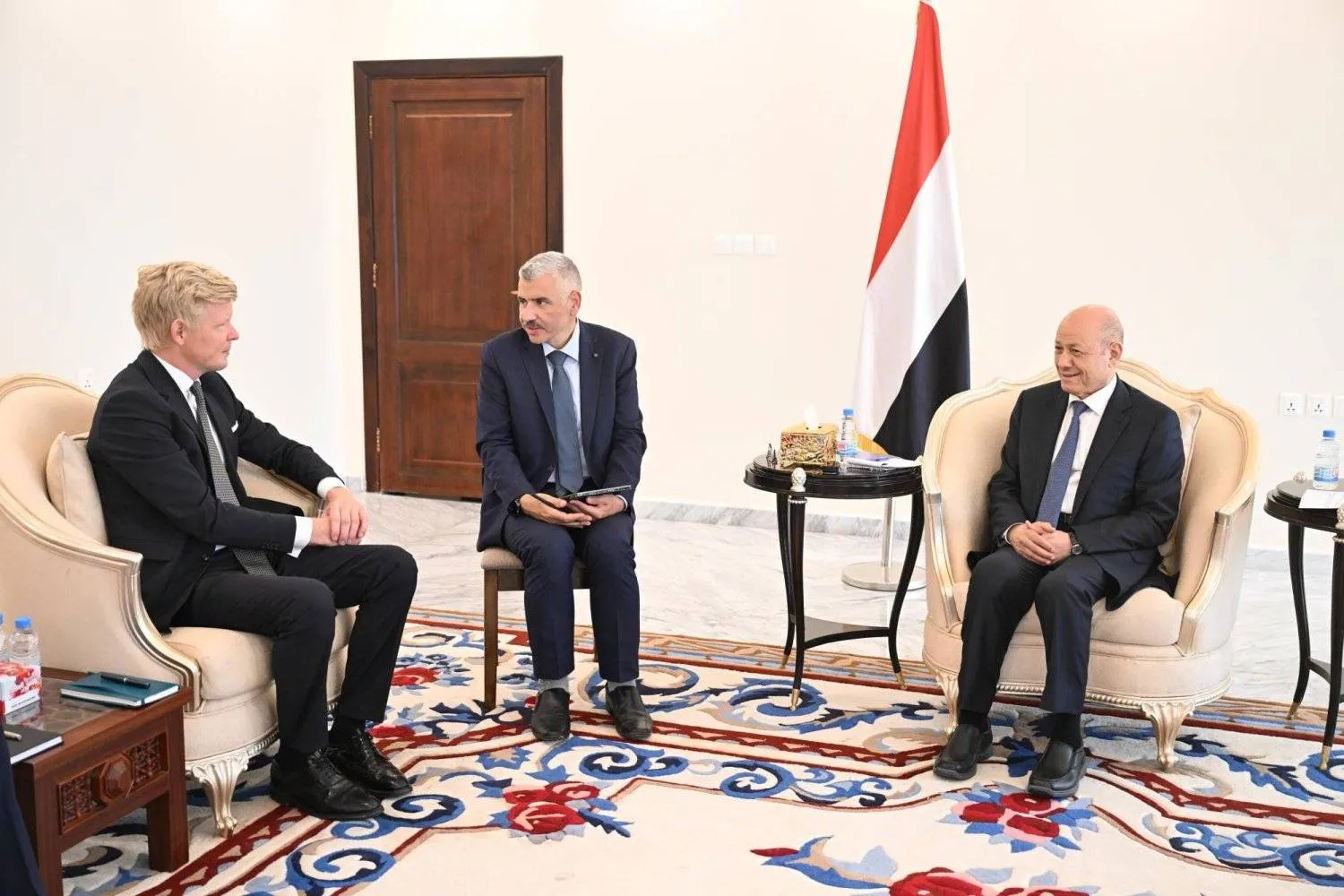UN envoy Hans Grundberg is working to address the Yemeni crisis, but Rashad al-Alimi, head of Yemen's Presidential Leadership Council (PLC), has questioned the Houthi militias’ trustworthiness for peace.
During Grundberg’s visit to Aden, the interim capital, Al-Alimi told him that the Houthis may not be a reliable partner. Grundberg had called for “constructive dialogue” to ease tensions.
Yemen’s state media reported that Al-Alimi received an update on Grundberg’s recent talks and his focus on reducing tensions and restarting the peace process, which has been disrupted by “Houthi terrorist groups supported by Iran.”
Grundberg thanked Yemen’s PLC and government for their work to reduce tensions and prevent a return to widespread conflict, according to SABA News Agency.
On his part, al-Alimi reaffirmed support for the UN’s efforts to restart a political process based on a Saudi roadmap.
He also supported UN efforts to address the worsening humanitarian situation caused by Houthi attacks on oil facilities and shipping lanes, which he said are backed by Iran.
Al-Alimi stressed the need for continued local, regional, and international attention on Houthi actions, including human rights abuses and measures against Yemenia Airways that worsen humanitarian conditions and damage the airline’s reputation.
The Houthi group, backed by Iran, is holding four Yemenia Airways planes in Sanaa and blocking the airline from accessing around $120 million in its bank accounts.
The PLC chief said a recent failed Houthi attack on the Safir oil facility in Marib shows the Houthis are not a reliable partner for peace. He accused them of prioritizing their supporters’ interests over Yemen’s needs.
Al-Alimi stressed the need for international unity and listening to Yemenis’ calls for stability and peace, in line with UN resolutions, especially UNSC Resolution 2216.
Grundberg, who has not reported progress on economic issues between the Yemeni government and the Houthis, urged for constructive dialogue to reduce tensions. His office stated that he and Al-Alimi discussed the urgent need for a broader dialogue to ease tensions across Yemen.
Grundberg has expressed concern over UN staff held by the Houthis and renewed the UN Secretary-General’s call for their immediate release.
The UN diplomat ended his visit to Muscat, where he met with Omani officials and Houthi negotiator Mohammad Abdelsalam. He stressed the urgent need for de-escalation in Yemen and urged the Houthis to prioritize the well-being of the Yemeni people.
Grundberg also called for the immediate release of the detained UN staff during his meetings. Before Muscat, he discussed de-escalation efforts with Saudi Ambassador to Yemen Mohammad Al Jaber in Riyadh.
In Riyadh, Grundberg met with the ambassadors of the five permanent UN Security Council members, highlighting the need for a unified approach to support peace talks and a ceasefire in Yemen.









